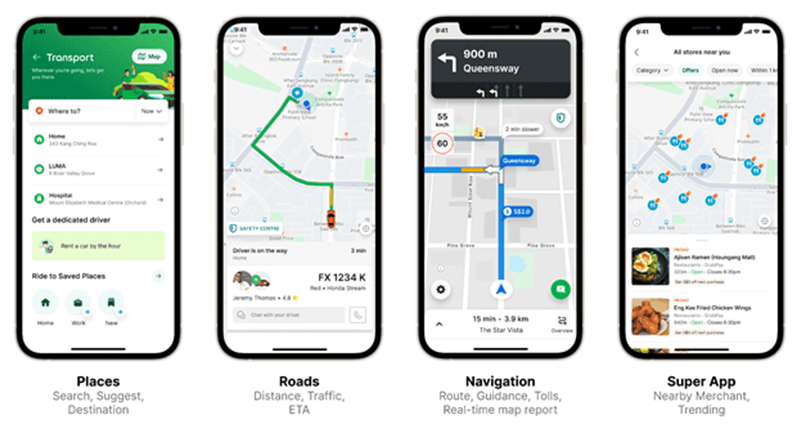Grab will use only in-house built mapping technology by the third quarter of this year in all Southeast Asian markets in which it operates.
The superapp maker said that its in-house mapping service, called GrabMaps, presently provides location-based intelligence and services to all Grab verticals in seven out of the eight countries it operates in”.
“Grab expects to be fully self-sufficient with GrabMaps by Q3 2022,” it said in a statement.
It clarified in footnotes that that meant it “will no longer be dependent on paid map and location-based services from third party providers.”
“Grab continues to use OpenStreetMap as its base layer map via an open database license,” it added.
The announcement coincided with Grab opening GrabMaps up as an enterprise service in its own right, giving other companies the chance to use the mapping software as well.
Grab said that mapping software is a US$1 billion market opportunity in Southeast Asia that it wanted a slice of.
It will target location-based services users such as tech platform makers, as well as telcos, logistics companies and government agencies.
“APIs and mobile software development kits (SDKs) that Grab plans to launch later in 2022 and in 2023 respectively, will allow developers and teams to enhance or build their own applications and geolocation capabilities leveraging GrabMaps technology, such as Grab’s routing, search, traffic and navigation features,” the company said.
Grab co-founder Tan Hooi Ling said GrabMaps accuracy would be a drawcard for regional users of location-based services.
“The back alleys and narrow side streets common across Southeast Asia cities often don’t show up on conventional maps, but are navigated by our driver and delivery partners every day,” she said.
“We’ve invested to turn this intelligence into a competitive advantage, allowing us to serve our users and partners with a great experience, at the same time driving efficiency and cost-savings for the business.
“We’re very proud that soon we will be fully self-powered by our own mapping and location-based technology.
“Commercialising this technology is another step forward for our young but fast-growing Enterprise and New Initiatives business.”








.jpg&h=271&w=480&c=1&s=1)
